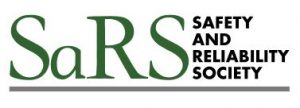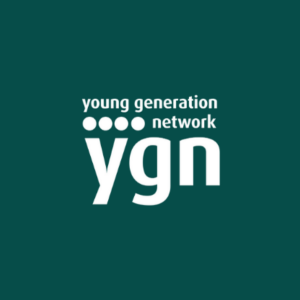Fukushima: A Decade On
11th March 2021 marks the 10th anniversary of the great Tohoku earthquake in which Japan endured one of the worst combined natural disasters in its history when the earthquake struck its eastern coast and was followed by a tsunami which led to the loss of thousands of lives. These combined natural disasters were also at the origin of the Fukushima Daiichi nuclear power plant accident.
SaRS, Hazards Forum and the Nuclear Institute YGN are convening a lunchtime webinar 1200 – 1330 to mark this. The keynote presentation is from Dr Mike Weightman CB, former HM Chief Inspector of Nuclear Installations, and Chief Executive at the Office for Nuclear Regulation in the UK.



The event will be chaired by Rear Admiral (Retd) Paul Thomas, Honorary Fellow of the Safety and Reliability Society
Our Keynote Speaker is Dr Mike Weightman CB, the former HM Chief Inspector of Nuclear Installations and CEO Office for Nuclear Regulation and chairman, Honorary Fellow of the Safety and Reliability Society
SPEAKER: Dr Marie-Laure Hicks:
Policy Advisor – Research and Innovation, Royal Academy of Engineering. Marie-Laure leads the Royal Academy of Engineering’s project on critical capabilities for UK resilience.
SPEAKER: Mark Salisbury – Nuclear Institute
Mark is a member of the Board of the Nuclear Institute and Chair of the Wales branch and Nuclear Institute Fellow
TO REGISTER FOR THE WEBINAR PLEASE CLICK HERE
11th March 2021 marks the 10th anniversary of the great Tohoku earthquake in which Japan endured one of the worst combined natural disasters in its history when the earthquake struck its eastern coast, followed by a tsunami which led to the loss of thousands of lives. These combined natural disasters were also at the origin of the Fukushima Daiichi nuclear power plant accident, due to the prolonged loss of electric power supply and ultimate heat sink required for cooling. This accident affected the lives of tens of thousands of displaced Japanese citizens, resulted in very large economic costs and caused considerable environmental damage in the surrounding area.
The Fukushima Daiichi nuclear power plant accident lead to an in depth international investigation of the event, which has provided key learning in design, resilience and emergency response.
The events at Fukushima marked a turning point in terms of reviewing how nuclear safety is evaluated and ensured. It has triggered a closer examination of specific site locations and designs associated with those sites. It has also compelled nuclear safety experts to confirm that the principles upon which nuclear safety has been built remain valid, notably the defence-in-depth concept, but highlighted that more needs to be done to ensure their effective implementation.
A decade on from this event we are in the midst of a global pandemic which has immense health and economic costs. What can we learn from previous events to improve resilience both as organisations and a wider society?
This event, organised jointly by the Safety and Reliability Society, Hazards Forum and the Nuclear Institute Young Generation Network brings together a number of key experts to reflect on factors which lead to the Fukushima accident, the Nuclear Industry’s response and what we can learn to make our organisations and societies more resilient.
Presenters
This joint webinar hosted by the Safety and Reliability Society and Hazards Forum will bring together a number of key experts to reflect, the subsequent investigation by the International Atomic Energy Agency and how learning from the event has been embedded throughout the nuclear sector and wider society.
Chair:
Rear Admiral (Retd) Paul Thomas CB
Paul Thomas was a career naval officer reaching the rank of Rear Admiral. He was awarded the Queen’s Commendation for Brave Conduct in 1980 and the US Legion of Merit in 1998. He was appointed a Companion of the Order of the Bath (CB) in 1998.
Upon retiring from the Royal Navy in 1998 Thomas joined AEA Technology, Nuclear Engineering where he held the positions of Director Engineering Projects and Director Strategic Development. He moved to British Nuclear Fuels plc in 2001 as Director Environment, Health, Safety and Quality. In 2005 he joined the Board of RSSB Ltd as a non-executive Director . Paul chaired the Hazards forum for seven years, is a past President of the Nuclear Institute and an Honorary Fellow of the Safety and Reliability Society
Keynote Presentation:
Dr Mike Weightman CB
BSc, MSc, DPhil; Fellow of the Royal Academy of Engineering, Fellow of the Institute of Physics, Fellow of the Institute of Materials, Minerals and Mining; Honorary Fellow of the Safety and Reliability Society; Chartered Engineer, Chartered Physicist
DR Weightman is a former HM Chief Inspector of Nuclear Installations, and Chief Executive at the Office for Nuclear Regulation in the UK. Dr Weightman was invited to lead the IAEA International Expert Fact Finding Mission to Japan in May/June 2011 into the Fukushima Daichi event and subsequently reported on the implications for the UK nuclear industry.
Following retirement from the ONR Dr Weightman is now an independent Nuclear Consultant with MWA Ltd and also holds a posts as Visiting Professor, Engineering Department, Cambridge University; Non-executive Director, National Nuclear Laboratory; Independent Advisor to the Japanese NDF and NRA; independent consultant to UK NDA, Finish Government; OECD’s NEA, IAEA, international companies .
Dr Marie-Laure Hicks
Policy Advisor – Research and Innovation, Royal Academy of Engineering
Marie-Laure leads the Royal Academy of Engineering’s project on critical capabilities for UK resilience. This project examined four past emergency case studies, including the UK response to Fukushima, to draw out wider lessons for emergency planning and preparedness and recommendations for government. Marie-Laure is a policy advisor in the research and innovation team and also works on a wide range of activities that aim to stimulate a dynamic and thriving ecosystem for engineering R&D and innovation that improves productivity and delivers economic and social value for people from all parts of the UK, including the COVID-19 response project ‘Stimulating R&D for a faster and better recovery’, and leading the follow-up project to ‘Increasing R&D investment: business perspectives’ on late-stage R&D.
Prior to joining the Academy in 2019, Marie-Laure completed a PhD at the London Centre for Nanotechnology, University College London (UCL). Whilst at UCL, Marie-Laure undertook a secondment at the Parliamentary Office of Science and Technology (POST) and has previously worked as a summer portfolio analyst at the Technology Strategy Board, now Innovate UK.
Mark Salisbury – Nuclear Institute
Mark is a member of the Board of the Nuclear Institute and Chair of the Wales branch and Nuclear Institute Fellow. In addition he is a Fellow of the Royal Society of Chemistry, Institute of Innovation and Knowledge Exchange and the World Nuclear University. He is a Chartered Chemist and Scientist and holds a degree in Chemistry from the University of Warwick. Starting out as a student with Magnox Electric at Berkeley Centre, Mark has held numerous roles in the nuclear industry across different technologies and companies. He has worked on operational nuclear power plant and new build projects across the UK, Germany and Finland.
Starts
Thursday, 11th March 2021 at 12:00pm
Ends
Thursday, 11th March 2021 at 1:30pm
